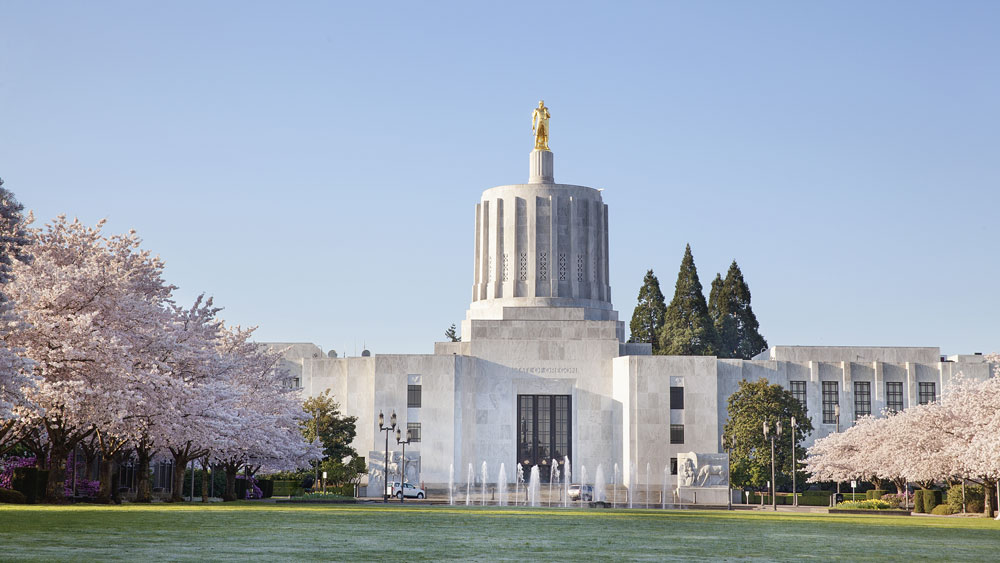On June 7th the Senate Committee on Finance & Revenue unanimously sent House Bill (HB) 2573A to the full Senate for passage.
One part of HB 2573A attempts to make the process of reporting business personal property clearer and simpler, but the original bill would have required additional mailings, documents, and processing that may not be necessary for some assessor’s offices. Earlier Polk County Assessor Doug Schmidt had explained to the House Committee on Revenue that because of budget and staffing constraints, some assessors are not mailing a personal property return to every business every year. For those assessors who do not mail to every business every year, the statute should make the mailing of the letter optional to the assessor. This lets the assessor determine, based on knowledge of their taxpayers, if the letter is necessary. This also cuts down on time and costs to the assessor’s office that also may not be needed. The House committee agreed and incorporated the suggestion, which was retained by the Senate committee.
The other part of HB 2573A relates to increasing the personal property tax exemption from $12,500 to $25,000 on manufactured housing in counties where population exceeds 570,000. This change in value increases the exemption from a current level of $16,500 to $33,000. The effect of the change is confined to Multnomah and Washington Counties. Both county commissions support this change and there is no opposition. Clackamas and Lane Counties declined to be included, and will retain an exemption level of $16,500. Meanwhile, on June 5th the House Committee on Revenue sent an unamended HB 3453 to the full House for passage. HB 3453 deals with two statutes (ORS 307.112 and 307.166) that relate to exempt leases.
Under current law (ORS 307.112), real or personal property of a taxable owner held under lease, sublease, or lease-purchase agreement by an institution or organization granted an exemption or the right to claim an exemption is exempt if the property is used in accordance with the exemption requirements and the rental price of the property has been established to reflect the savings below market rent resulting from the exemption from taxation. An application is required to be filed with the county assessor to receive the exemption. HB 3453 would modify the language to require the benefit of exemption and the tax savings that result from the exemption, to inure solely to the benefit of the exempt organization leasing the property.
Also under current law (ORS 307.166), property exempt from property taxation that is held by an exempt owner and the exempt owner leases or otherwise grants the use and possession of the property to another institution or organization that is likewise granted an exemption, the property can continue to be exempt from property taxation. For the property to be exempt, the rent payable under the lease or other grant of use and possession must reflect the tax savings resulting from the exemption.
An application is required to be filed with the county assessor to receive the
exemption. HB 3453 would modify the language to require the benefit of exemption and the tax savings that result from the exemption, to inure solely to the benefit of the exempt organization leasing or subleasing the property.
With the approval of HB 2088A on June 7 by the Senate Committee on Finance & Revenue, Multnomah County and Gresham are closer to having the authority to calculate and apply the Measure 50 (1997) Change Property Ratio at the city, rather than the county, level.
Applied only to Multnomah County, HB 2088A allows a city located there to specify through ordinance or resolution that the area within the city boundary is to be used for purposes of computing Maximum Assessed Value of specified property. The bill requires a public hearing and approval by a three-fifths majority of members of the city governing body for the ordinance or resolution to be adopted. The city may adopt or repeal the ordinance or resolution no more than once in a five-year period. The county assessor would withhold from the city property tax distribution an amount equal to the cost of software upgrades required due to the city ordinance or resolution, up to $60,000. The bill is applicable to assessment years beginning on or after January 1, 2019, or with assessor consent, January 1, 2018.
The City of Gresham and Multnomah County have reached an agreement to give this new concept a try.
Contributed by: Gil Riddell | AOC Policy Director
